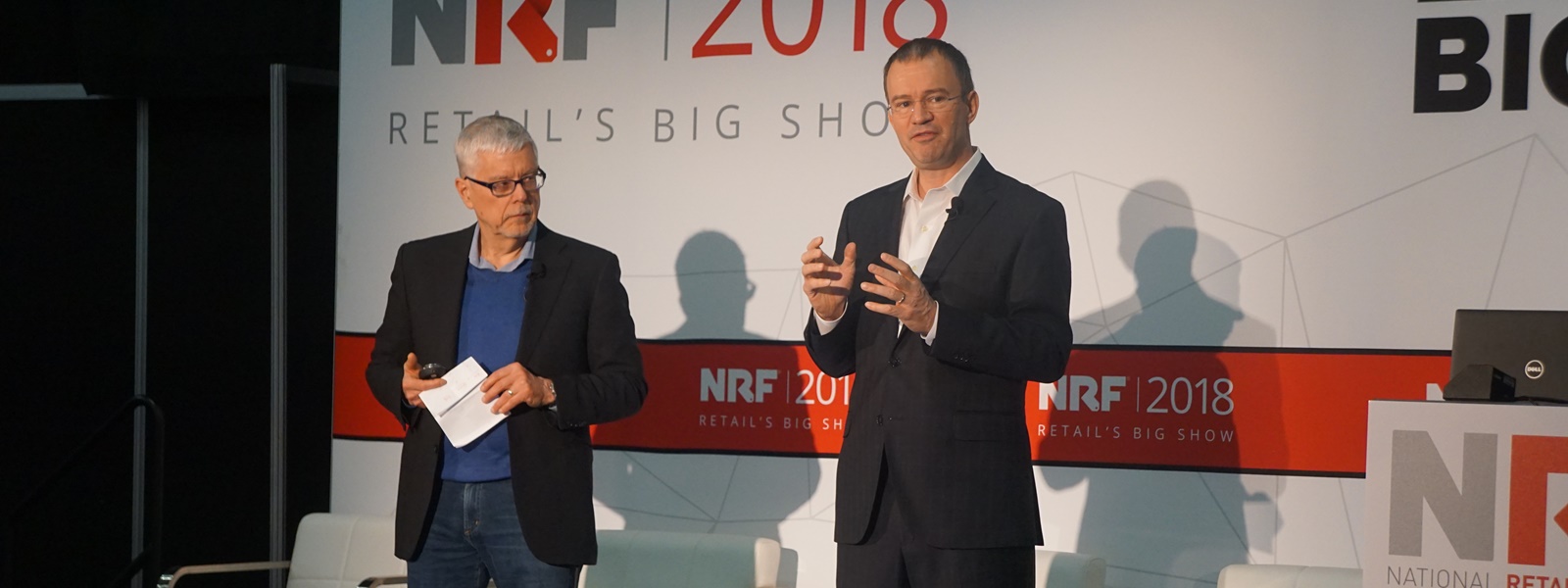Tell us about your background
I was born in Ayr and spent most of my school years in Ayrshire. I have one brother and one sister, both of whom attended Strathclyde. My father and mother both worked in the education sector at various different times, and my father established the Scottish Space School which is hosted by Strathclyde’s engineering department.
My brother and I both played football growing up and we played professionally in the Scottish first division while we attended university. I also represented the UK in football at the World University Games that were held in the USA in 1993.
I now live in the USA (just outside Washington DC) with my American wife, Cara, and my three sons, Campbell, Lachlan and Iain.
Why did you choose Strathclyde?
I always enjoyed making and building various items when I was young and I enjoyed maths and physics at secondary school; these interests led me to consider studying engineering.
I researched various universities and found out that Strathclyde had a strong engineering department. There was a course at Strathclyde that really appealed to me as it was a multi-disciplined engineering course (manufacturing, mechanical and electrical engineering) and it included a variety of business courses as well – it was set up to enable engineers to move into management positions by combining engineering and business knowledge and skills.
I was really impressed with the university’s open day and the people I met were very welcoming and engaging. After all of my research and the positive experience I had at the open day, I decided that I wanted to study at Strathclyde.
Do you have a highlight from your time at University?
I have many highlights from my time at Strathclyde. The best highlight was the many great friendships I made that persist until this day – people had a great combination of down-to-earth humour, friendliness and intelligence.
During the first two years of our course we had to attend the Engineering Applications Centre where we were able to do some hands-on work (e.g. stripping down an engine and rebuilding it, welding, etc.) to complement the courses we were studying. We also had a chance to work in the engineering laboratories using CadCam and punch cards to perform subtractive manufacturing.
In our final two years we had to complete a team engineering design project that involved finding an appropriate application for a Wankel Rotary Engine – we designed a jet ski that leveraged the engine’s high power to weight ratio.
What has been your most memorable moment from your career so far?
There have a been a few memorable moments that have stood out but there was one experience in particular that gave me insight into how companies are started, developed and turned into sustainable on-going enterprises.
I worked for a Software-as-a-Service start-up that combined data, advanced analytics and software that provided price, promotion and assortment optimisation solutions to retailers to help them set and execute their merchandising strategies and plans. Interestingly, I had completed a statistics course and an operational research course while at Strathclyde and these were highly relevant to the econometric modelling and optimisation analytics that were used in the software.
Initially I was the product manager for our end-user software solutions before moving into our sales team. I then managed our strategic partnerships with other industry participants. As a result, I was fortunate to see a variety of different aspects of the business and understand how product management/development connected to marketing, sales and implementation.
We went from a small start-up with no customers to an established company with some of the world’s largest retailers as customers and we eventually went public – it was a really interesting journey.
What is the best part of your job?
I enjoy being able to work for companies that make a meaningful difference to people’s lives and to the success of the organisations within which they work. I've found that by combining vary large and granular data sets with advanced analytics and wrapping it all up in a usable piece of software that enables a business process you can deliver tremendous value to people and organisations.
I enjoy working with team members as we interview potential software users about their jobs in order to understand what they are looking to achieve, what challenges they have and how they add value for their organisations.
After specifying the requirements, I would have the opportunity to work with software engineers and analysts so they can build solutions that make it easier or faster for people to do their jobs and to over-achieve on their objectives. In order to achieve buy-in from the user community, we then have to be able to communicate in a non-technical way while telling a context-relevant story about the insights to the key decision-makers and users.
I find it fulfilling working with cross-functional teams through the closed-loop process from initial discovery to design/build/launch and then to implementation and successful roll-out/adoption.
What are your ambitions for the future?
I’m really excited by the possibilities that can be achieved via technology that employ analytics to generate insights from the massive amounts of data that humanity is now producing. While my experience has mainly been in the areas of retail and FMCG manufacturing, I believe there are tremendous data analytical opportunities in the fields of medicine/health.
Not only will advances in data analytic technology allow new medical discoveries to be made but there will also be some far-reaching societal benefits that can be realised from remote monitoring of the health of individuals and the analyses of disparate health data to identify possible health issues in time to avert potentially negative consequences.
